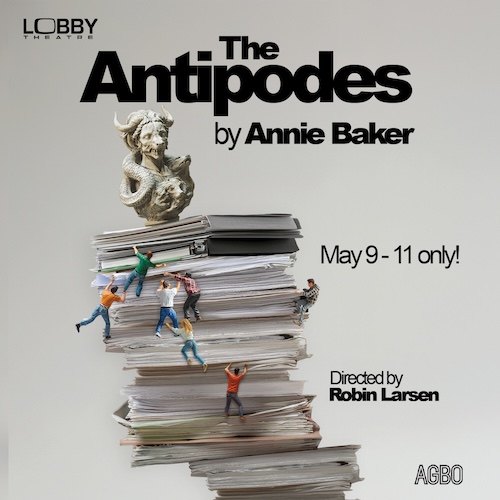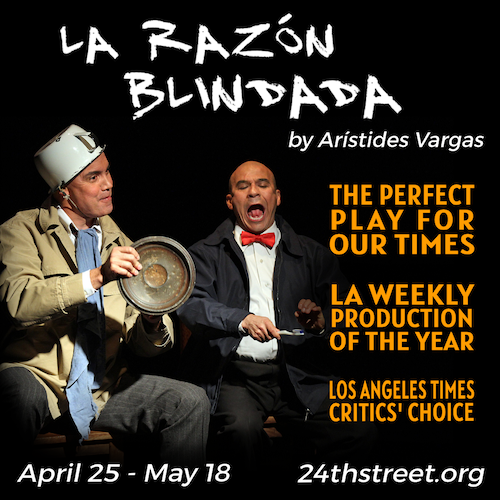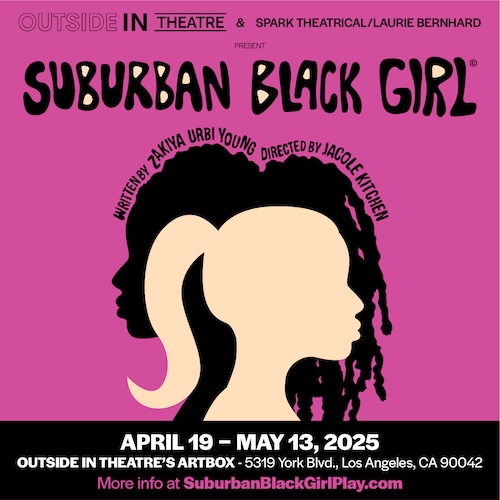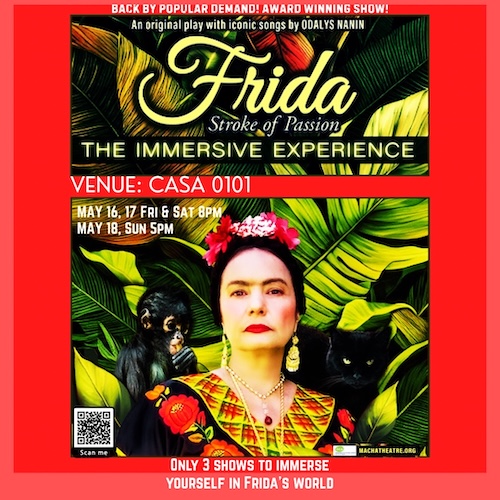The Trial of Dali
Reviewed by Stephen Fife
Drama Theatre Fantazja at the Hollywood Fringe Festival
Closed (May be Extended)
There are master artists and there are master showmen, but there has never been an artist like Salvador Dali, who was both. Dali was a surrealist, and he considered his life as much a work of art as his paintings. He was criticized severely in his later years for his clownish behavior and for frequently making inferior copies of his own art just for the money. Yet Dali’s early work is remarkable by any measurement. I remember wandering through a retrospective of his paintings in awe at both his originality and his craftsmanship. As a draughtsman, he was truly the heir of the Renaissance Masters and equaled in his time only by Picasso, whom he revered.
Yet much of what we remember about him are his public exploits with his wife and muse, Gala. These included attending a party in New York City in 1935, costumed as the Lindbergh baby and his kidnapper. Since the Lindbergh baby had been abducted and killed just three years earlier, this gambit was greeted by a huge public outcry — so huge that Dali was finally forced to issue an apology. This apology in turn outraged his fellow Surrealists (who believed one should never apologize for a “surrealist” act). Some of them also resented his lavish lifestyle and worldwide celebrity.
This is part of the backstory behind The Trial of Dali by Andy Kolo, directed by Joanna Borkowska-Surucic and presented by the Drama Theatre Fantazja from Sidney, Australia, as a Hollywood Fringe production. According to a note in the program, “Dali and his wife Gala, after living for eight years in the United States and spending all their wealth, have returned in 1948 to their native Spain…[where] Dali faces absurd legal obstacles from his mortal enemies.” Except you wouldn’t really get all that information from watching the play, which is absurdist in style, but without any particular target for its absurdity. Rather, it is a mashup of different timelines and characters from Dali’s life, shaped to a surrealistic conceit.
James Domeyko plays Dali, and early on he has some intriguing and memorable moments. Domeyko is tall and very thin, with dark hair and a dark moustache; he bears a distinct resemblance to the artist in his mid-to-late 20s. There is also something mysteriously weird about him that goes along with photos I’ve seen of Dali in his youth. Domeyko has the rubber-limbed physicality of Jim Carrey in Ace Ventura and The Mask. In short, he’s well-equipped to play Salvador Dali — if only he had something of substance to depict.
There are other talented performers in the production, most notably the very lovely Marta Kiec-Gubala as Isabel Canto, Dali’s friend and legal representative. Picasso, Andy Warhol and Marilyn Monroe are characters too, speaking out on behalf of Dali to his enemies. Regrettably, there are no real stakes in the play, nothing we are moved to care about, and they all blend together in an absurdist celebrity stew.
Too bad, because Dali is a fascinating character, and there is a wonderfully rich story to be drawn from this material.
The Ruby Theatre at The Complex, 6476 Santa Monica Blvd., Hollywood; Closed. https://www.hollywoodfringe.org/projects/6195. Running time: 80 minutes with no intermission.















